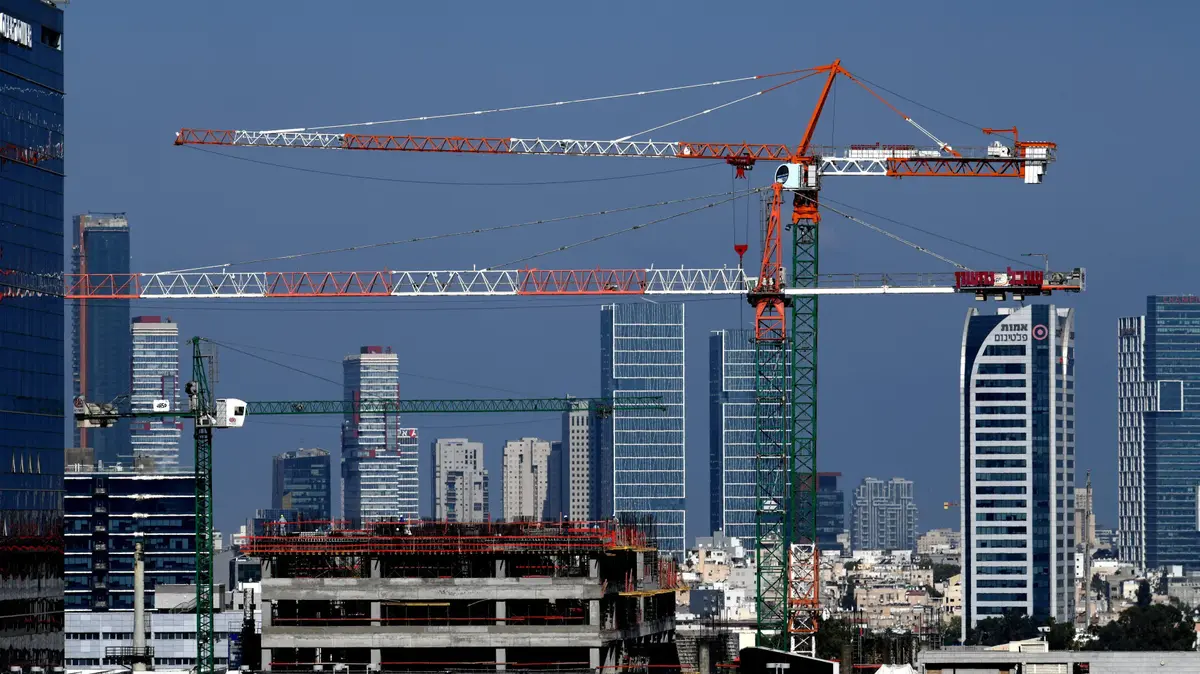This legislation is important, but the price will be paid by the buyers of the apartments
The expected completion of the legislation before the dissolution of the Knesset is a welcome step in favor of future buyers of apartments in Israel, but the contractors have already begun to raise apartment prices in order to deal with the exposure.
Nir Shmol, guest column
30/06/2022
Thursday, 30 June 2022, 12:01
Share on Facebook
Share on WhatsApp
Share on Twitter
Share on Email
Share on general
Comments
Comments
The Finance Committee's decision to complete the amendment to the Sale of Apartments Law (Section No. 9) in the context of linking to the construction input index is causing a stir among contractors and apartment buyers trying to understand the meanings of the law just before the Knesset dissolves and final approves the amendment.
In practice, the significant change introduced frames the increase and stipulates that only about 40 percent of the actual apartment price will be linked to the construction input index over the construction period of the project.
The issue has made headlines in recent months in light of an increase in the construction input index, especially in the past year, a dramatic increase of close to 7 percent per year, compared to previous years when the index did not exceed 3 percent, very similar to the regular consumer price index.
It is important to note that these are values of the construction input index that are very high, similar to the values that existed in the early 2000s, when the construction input index reached similar values (along with high interest rates on mortgages).
Good to know (promoted)
The secret to improving your sex life - now on a special sale
Served on behalf of "Gabra"
As long as the building does not stand, you will pay and pay (Photo: Reuven Castro)
The wave of price increases in the economy does not miss the index of residential construction inputs, and is greatly affected by the global supply crisis as a result of the Corona virus and the war between Russia and Ukraine that greatly affected the world supply crisis. Of 40 years in both the United States and Europe.
This wave is not missing out on Israel either, of course, and we are seeing the price increases in every area, including fuel, food, electricity, vacations, flights, taxes and, of course, construction inputs.
The big concern of buyers, especially of new apartments, is the time of construction, which extends on average between 4-3 years to the completion of a residential project.
This is completely understandable, given the fear of an increase that could reach 25-15 percent beyond the price of the apartment today for those who buy an apartment on paper.
In light of this concern, the issue reached the Knesset and the Minister of Construction and Housing, Zeev Elkin, fought with all his might to approve the move and protect the public of apartment buyers.
Minister Elkin's main argument was based on the fact that the construction component in Israel is about 40 percent of the price of the apartment and most of the costs in Israel are with the land component, which is about 55-40 percent of the value of an apartment.
Therefore, why link the construction input index to the land already paid for by the developer and not relevant to his conception of linkage, and not just to the direct construction component?
Of course, this move drew strong and clear opposition from all the contractors' organizations in Israel, who claimed that this was an unfortunate decision that would force them to raise apartment prices in order to deal with the issue.
According to the contractors, the linkage of the construction input index to the entire component of the contract, including land and construction, is mainly true because the construction costs of apartments in Israel have risen significantly in recent years.
If, for example, when a contractor purchased the land two or three years before construction began, in light of bureaucratic procedures in Israel of issuing a building permit, which take an average of two to three years from the date of purchase of the land, or alternatively in urban renewal projects and TMA between 5-4 years on average Or 10-8 years in construction clearance projects.
Hard to win.
Elkin (Photo: Flash 90, Yonatan Zindel)
The construction price was NIS 5,200-4,200 per square meter of direct construction on the day the land was purchased / the signatures of the landowners began in urban renewal projects. The linkage to the construction input index reflects this increase in construction prices, which have risen significantly in recent years, both due to the small number of construction contractors in Israel (a very risky field with many bankruptcies of contractors) and, as mentioned, due to a significant increase in construction inputs.
It is important to understand that there are real estate developers in Israel who do not own construction companies.
They do tenders in every project to select a contractor.
Therefore, any increase in construction prices is fully rolled out to them and they are in a BACk to back deal with the purchasers for a contract with the contractor who is building the building.
Most contractors in Israel, even though they close flat prices (ie, final price until a key is received) have very many exceptions, especially in changes made during construction or discrepancies with the original plans that change (many of the execution tenders in Israel are made before obtaining a final building permit).
Therefore, the excess "compensation" in the buyers' index against the contract with the contractor, was a way of compensating the developer for increases in the prices of his contractor's performance on the field.
In the field of urban renewal, the tension between the developer and the contractor is further increasing significantly, in light of the fact that the developer is also linked to the construction input index on the landowners component, to which he is obligated to build new apartments.
The landowners themselves pay nothing (because they gave the land on which they lived to the developer), and therefore the "compensation" in the linkage component he received from the new apartment buyers would compensate him for the lack of linkage to the landowners' apartments that lived in the old building before it was demolished and rebuilt.
So what does the future hold for us?
Two interesting things are happening in the near future.
First, some contractors have started to raise apartment prices in order to deal with the law that is supposed to come in at the end of the waiting period (it is not yet clear how long this period will last) between 5-4 percent on average.
Other contractors will not increase the prices of apartments and reduce the percentage of discount given to customers.
Other contractors are "sitting on the fence" waiting to see what the others will do.
Or that a further increase in prices in light of the change in the amendment to the law regarding the construction input index will further reduce the volume of sales.
Therefore, the contractors are waiting to see the situation in the real estate market before making a decision on whether or not to raise prices now, when according to the Bank of Israel a slowdown in economic activity is expected.
Another big question is what will the buyers of the apartments do - will they prefer to wait and not buy an apartment now but until the actual date of the law actually becomes clear?
Will they cancel the registrations they made and take the risk that the price of the apartment will rise when they want to go back and buy the apartment (assuming someone else has not already bought it) What greater fear for them, the fear of rising real estate prices Go and sign a contract before the law goes into effect and absorb 100 percent of the linkage for construction, or wait and buy for the law to take effect and then pay a linkage for only 40 percent of the price of the apartment).
Will the sales momentum stop? (Photo: Reuven Castro)
Nir Shmol (Photo: Tomer Feder)
Looking back, when Minister Meir Sheetrit enacted the Law on the Limitation of Lawyers' Fees, an entrepreneur paid an average of 1.5 percent of the price of the apartment to a lawyer and the amount reached NIS 5,000 plus VAT (except in luxury apartments). Come in, the contractors will cost the apartments at this price and the buyers also had to pay NIS 5,850 in attorney's fees (including VAT, and also indirectly the percentage and a half that has already been redeemed at the new apartment price).
Of course, new buyers have lost out on the move, but again it is important to understand that in the last 16 years real estate prices have not stopped rising and therefore any increase in prices, for whatever reason, the market has "swallowed".
The question here is whether we are at the beginning of a new period of recession in the Israeli economy (there is already a recession in the world, mainly in the United States and Europe) and then the rules of the game change.
It is not certain that real estate prices can be raised when the sales rate falls according to the Helms data, interest rates rise and inflation rages. In the next two months we will know the answer.
The author is the CEO of the Urban Development and Renewal Company and the Snir Company.
Real Estate
In the country
Tags
Building
Contractors








